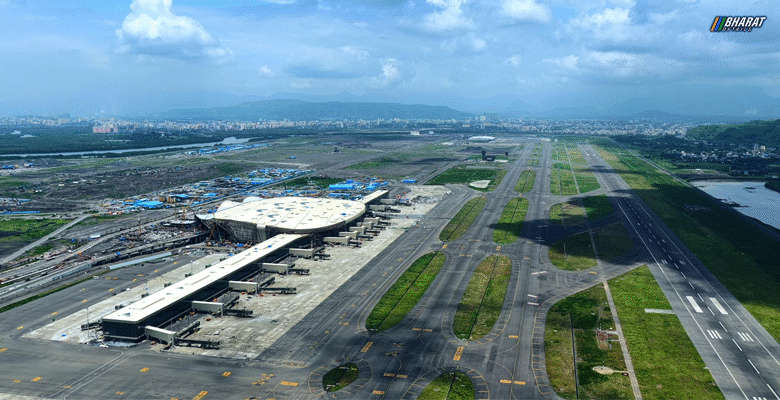Navi Mumbai International Airport Partners with Apollo Hospitals for 24×7 On-Site Medical Centre and ICU Ambulances

- Navi Mumbai International Airport teams up with Apollo Hospitals to establish 24x7 medical centres, ICU ambulances, and AED network—making passenger safety a top priority before launch.
Navi Mumbai International Airport has taken a major step towards passenger and staff safety by partnering with Apollo Hospitals, Mumbai, to establish a world-class 24×7 on-site medical infrastructure. This initiative aims to provide immediate emergency care, advanced disaster management, and round-the-clock health support across the airport premises.
The collaboration between Navi Mumbai International Airport Pvt. Ltd. (NMIAL) and Apollo Hospitals was formalized through a Memorandum of Understanding (MoU) earlier this week. The agreement is a landmark in Indian aviation safety, as it integrates a complete medical response ecosystem within one of the country’s most anticipated airports.
Contents
State-of-the-Art Medical Facilities
Under this partnership, Apollo Hospitals will establish six advanced medical centres inside Terminal 1, all operational 24×7. These facilities will handle everything from minor injuries to major emergencies, ensuring passengers and airport staff have immediate access to expert medical assistance.
Each medical centre will be manned by a dedicated team of three doctors, eight nurses, and two ambulance drivers, all trained in Advanced Cardiovascular Life Support (ACLS) — a globally recognized certification that equips medical personnel to manage critical cardiac and respiratory emergencies effectively.
Adding to this, the airport will deploy two fully equipped Intensive Care Unit (ICU) ambulances permanently on-site. These ambulances are designed as mobile emergency rooms capable of providing life-saving care during critical incidents or medical evacuations.
Comprehensive Cardiac Safety Network
In addition to human resources and ambulances, the airport will also feature a network of 65 Automated External Defibrillators (AEDs) strategically installed across passenger terminals. These devices are vital for quick response in case of sudden cardiac arrests and can be operated by trained staff or volunteers until professional medical assistance arrives.
An official from Navi Mumbai International Airport Pvt. Ltd. (NMIAL) shared that these installations are a key part of the airport’s broader disaster management preparedness strategy, ensuring immediate response in any medical crisis situation within the airport’s boundaries.
“Located just 4 km from the airport, Apollo Hospitals Navi Mumbai will lead emergency and disaster response readiness, ensuring timely medical intervention for passengers and airport staff,” read an official post from NMIAL’s verified handle on X (formerly Twitter).
Boosting Airport Preparedness Before Launch
The partnership comes as NMIA continues preparations before commencing commercial operations. The move highlights the airport’s commitment to operational excellence, passenger safety, and global health standards.
Industry experts note that this collaboration aligns with the “Smart and Safe Airport” vision for Navi Mumbai, focusing not only on advanced technology and infrastructure but also on medical security and emergency resilience.
Also read: Mumbai Longest Flyover: MMRDA Plans 21-Km Double-Decker Link Between Shil Phata And Bhiwandi
Meanwhile, the Central Industrial Security Force (CISF) has officially taken over the security management of the Navi Mumbai International Airport, a key step before its operational readiness certification. Though a specific date for the start of flight operations is yet to be announced, sources indicate that final testing and compliance procedures are underway.
A Benchmark for Future Indian Airports
The Apollo-NMIA collaboration sets a new benchmark for airport healthcare infrastructure in India. It underscores the growing emphasis on passenger-centric facilities, combining medical innovation with operational efficiency.
As India’s aviation sector rapidly expands, such models are likely to be replicated at other major airports to ensure global-standard safety, medical readiness, and traveler confidence.
With Apollo Hospitals overseeing 24×7 medical support, ICU ambulances, and AED-equipped terminals, the Navi Mumbai International Airport is shaping up to be one of the safest and most medically prepared airports in Asia. This partnership not only enhances emergency responsiveness but also reflects India’s growing focus on integrating healthcare excellence into its transport infrastructure.

